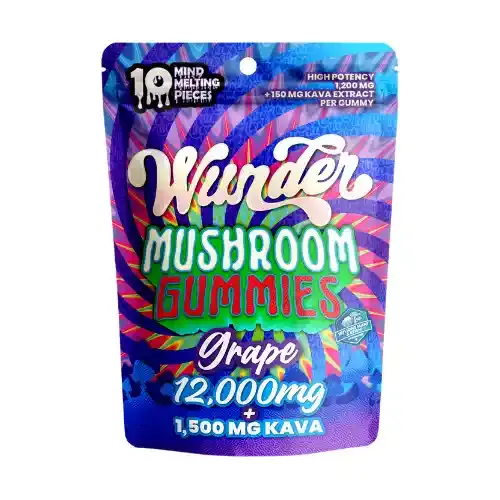
All About Kanna
Kanna is a remarkable herb that is best known for its mood-elevating properties – literally, an herb that makes you happy. Sound intriguing?
Read on to learn about the origins of kanna, traditional uses, modern research, safety, and practical tips for consumption. We’ll answer questions such as:
· What is kanna?
· What are the effects of kanna?
· How is kanna used traditionally?
· What does modern research say about kanna?
· Is kanna safe?
· How much kanna should you consume?
· Where can you buy kanna?
What is Kanna?
Kanna is a succulent, flowering plant with remarkable properties. Native to South Africa, the kanna plant has an important role in traditional medicine, particularly among the indigenous San and Khoikhoi tribes. It is commonly used to elevate mood, relieve stress and anxiety, promote tranquility, and reduce pain. Put simply, kanna is an herb that has been traditionally used to induce happiness.

Kanna Meaning
The etymology of the word kanna is revealing in itself. The name means something like “to chew” or “is chewable.” Hence, traditionally this is how the plant has been consumed in South Africa.
Kanna is also sometimes called channa, or kougoed. Kagoued refers to the fermented form of the herb, rather than the dried form. (We’ll address kanna preparation later on in the article.)
The Latin name, Sceletium tortuosum, tells us something further about the plant. When the leaves are dried, they take on a skeleton-like structure. The botanical name is derived from the Latin word sceletus, referring to the prominent veins of the leaves.
What are the Effects of Kanna?
Kanna boasts an impressive repertoire of benefits. Kanna effects include the following:
· Elevated mood
· Reduced stress and tension
· Anti-anxiety
· Analgesic (particularly, headache, toothache, and abdominal pain)
· Energizing
· Local anesthesia
· Supports the respiratory tract
· Spiritual benefits

Traditional Uses of Kanna
Kanna has been used since ancient times. It is a center-piece of traditional South African herbalism, specifically for San hunter-gatherers and Khoi people. Natives used kanna not only for physical healing, but also for emotional and spiritual healing.
In daily life, the dried or fermented herb would have been used to quench thirst and provide a boost of energy. It could also be used socially, the analog to coffee or alcohol in today’s western culture.
As a medicine, kanna was traditionally used to treat toothache, headaches, and abdominal pain. Historically, it was thought to act as an analgesic (pain killer) and even as a local anesthetic.
But the most cherished property of kanna was and is its ability to elevate mood, soothe anxiety, and provide an overall feeling of peace and contentment. In today’s society, we look upon this property from a clinical perspective: kanna is a promising treatment for depression, anxiety, and other mood disorders. From a traditional perspective, kanna is a powerful spiritual healer.
Modern Research on Kanna
If the magical powers of kanna seem a bit too outlandish for your skeptical, 21st century brain, you’ll want to hear what current science has to say.
Kanna is currently being investigated as a treatment for psycho-emotional conditions, including clinical anxiety and depression, psychological and psychiatric disorders.

What are the Active Ingredients in Kanna?
Kanna contains a host of important plant compounds called alkaloids. Alkaloids are a class of compounds that are naturally occurring in plants, which can have diverse physiological properties in humans. Alkaloids in kanna include compounds such as: mesembrine, mesembrenone, mesembrenol, tortuosamine, and chennaine. These compounds can have central nervous system targets, acting on endogenous receptors in the brain and spinal cord, which may explain the mood boosting properties of kanna.
For example, in a double-blind study, it was shown that alkaloids in kanna appear to have an inhibitory effect on serotonin reuptake. Selective serotonin reuptake inhibitors (SSRIs) are the most commonly prescribed form of antidepressant.
Besides alkaloids, kanna also contains a plethora of phytochemicals such as: anthraquinones, polyphenols, terpenes, anthocyanin, alkaloids, tannins, glycosides, coumarins, and carbohydrates. These compounds further contribute to anti-inflammatory and antioxidant properties of kanna, as discussed below.
Other studies have shown that kanna may help with diabetes and obesity by targeting certain enzymes that reduce glucocorticoid synthesis.
Granted, research on kanna is still in early stages, often performed on small sample sizes or in animal models. More research is needed to ascertain the benefits of this ancient plant remedy.

Properties of Kanna
With modern research, we now know that the therapeutic value of kanna can be attributed in part to the following properties:
· Antimicrobial
· Anti-inflammatory
· Anti-oxidant
· Antidepressant
· Anxiolytic (anti-anxiety)
· Anti-HIV
· Radical scavenging
Is Kanna Safe for Consumers?
Studies suggest that kanna has a good safety profile for most healthy individuals. A placebo-controlled, double-blind trial investigated the effects of two doses of kanna extract (8 mg and 25 mg) or a placebo, taken once daily, on a total of 37 healthy volunteers. Over the course of three months, there were no significant changes in vital signs, or other assessments which included hematology, biochemical markers, and urinalysis.
Interestingly, some of the patients reported adverse effects such as headache and abdominal pain, but these symptoms were more common in the placebo group than the group taking kanna.
The study did not assess any other effects of kanna, but participants in the treatment group gave unsolicited reports of improved well-being, including better sleep, and less stress.
However, more extensive research is still needed to assess the safety and toxicity of kanna. The absence of toxicity research does not mean that the substance is universally safe. There may be unknown contraindications, such as long-term use, higher doses, incompatibility with other substances, and risks for certain health conditions.
How to Consume Kanna
In South African tradition, the plant would have been prepared through fermentation. The fermented form of the plant is called “kougoed.” This form is suggested to have higher levels of alkaloids compared to the dried plant material.
As mentioned in the beginning, kanna was traditionally consumed by chewing the plant in dried or fermented form. Today, you can purchase kanna as an extract, in powdered form, as a tea, or even incorporated into chocolates and candies.

Kanna Dosing Guide
Based on current studies, we can affirm that kanna is safe at doses of up to 25 mg, once daily, for up to three months for most healthy individuals. Always consult with your doctor if you are unsure about your situation, be alert for side effects, and avoid mixing multiple herbal substances without professional advice.
Additionally, long-term kanna use is likely to build up a tolerance in regular users. Habitual use may even paradoxically increase anxiety in the long-term (not unlike cannabis use). It is recommended to consume kanna only as needed, and for no more than three months before taking a break. As with all substances, start at a low dose to see how you respond.
Kanna Shoulda Woulda
Have you been sleeping on this incredible herb? Or perhaps you haven’t been sleeping at all, because you really need this herb.
Either way, Green Dragon is pleased to supply you with the highest quality kanna products. If you have any questions about kanna, please don’t hesitate to contact us for a free consultation.










